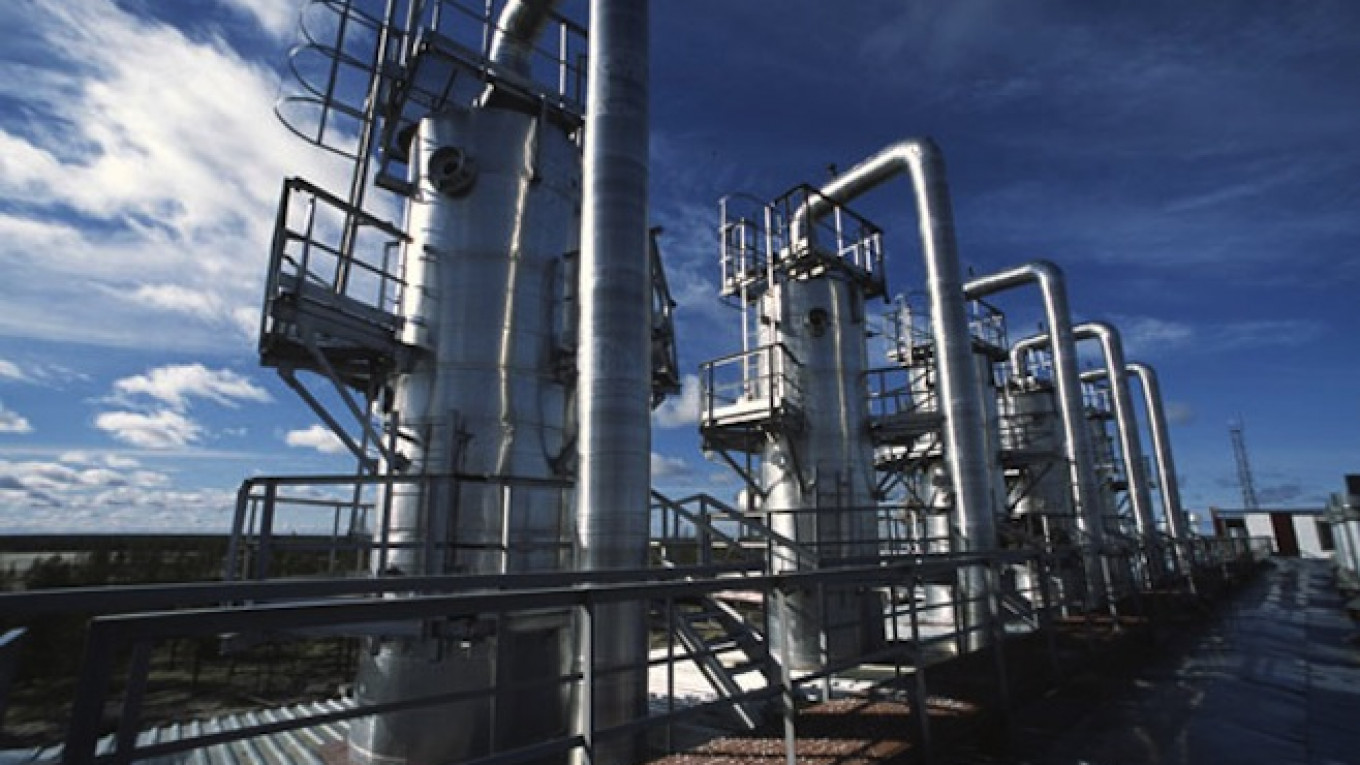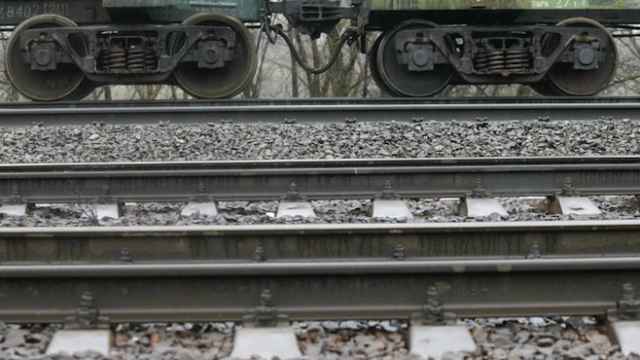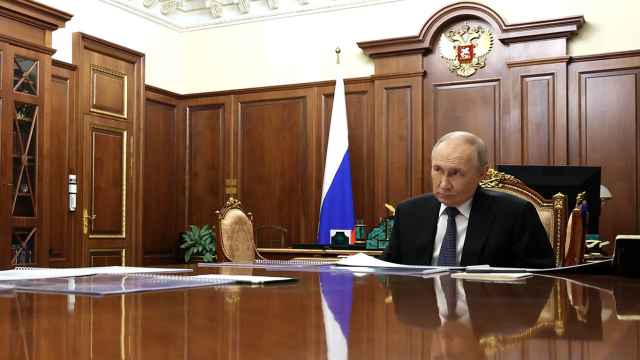Russia may prop up energy companies Rosneft and Novatek with up to $3.9 billion each from its National Welfare Fund, a reserve of oil proceeds set up to buoy the country's pension system.
Russia's government has promised to support those companies which, under EU and U.S. sanctions over Ukraine, are unable to access Western markets. Rosneft and Novatek, both run by allies of President Vladimir Putin, have signaled they will need help, with Rosneft asking for $40 billion.
Finance Minister Anton Siluanov was quoted by news agency TASS as saying the government was considering a proposal by the two companies for the wealth fund to invest 80 to 150 billion rubles in their bonds.
"We are considering the proposals ... I think that in this year we will be able to take such decisions," he said, adding that the proposals were for investment of up to 150 billion rubles in each company, Tass reported.
But Economy Minister Alexei Ulyukayev was quoted as saying by Interfax news agency that the two companies had yet to make formal requests, meaning it would be difficult for them to receive the help by the end of the year.
The government has so far avoided pushing the country into debt, instead planning on using reserves — including those set aside for Russia's 40 million pensioners — to support what Putin calls the country's "national champions," pillars of the economy in sectors such as energy and defense.
The National Welfare Fund was set up to support the pension system, which will be stretched in the future as the population ages and the working population shrinks. Using these funds has raised concerns that Russia is robbing the future to pay for today.
Russian officials are increasingly split over how to boost companies and an economy that is teetering on the brink of recession due to the sanctions imposed on its leading state companies and banks over Moscow's role in the Ukraine crisis.
The budget for 2015 to 2017 relies on high oil prices to cover social spending promises and offers little to those who want to see investment in companies to try to kick-start an economy expected to grow only 0.5 percent this year.
Rosneft, led by Igor Sechin, a long-time ally of Putin, has grown rapidly since it took over most of the assets from Yukos in the mid-2000s, and acquired rival TNK-BP last year, amassing large debts.
It will need to repay $26.2 billion between July this year and December 2015, with peak repayments of $9.4 billion in the fourth quarter this year and $11.8 billion in the first quarter next year, Moody's rating agency said in a July note.
Novatek, co-owned by Gennady Timchenko, another Putin ally, has good liquidity, with only a $350 million syndicated loan maturing within the next 18 months, according to Moody's.
However, Timchenko has admitted that the sanctions have deterred financing from European as well as U.S. banks — complicating investment projects such as its flagship $27 billion Yamal liquefied natural gas project in the Arctic.
A Message from The Moscow Times:
Dear readers,
We are facing unprecedented challenges. Russia's Prosecutor General's Office has designated The Moscow Times as an "undesirable" organization, criminalizing our work and putting our staff at risk of prosecution. This follows our earlier unjust labeling as a "foreign agent."
These actions are direct attempts to silence independent journalism in Russia. The authorities claim our work "discredits the decisions of the Russian leadership." We see things differently: we strive to provide accurate, unbiased reporting on Russia.
We, the journalists of The Moscow Times, refuse to be silenced. But to continue our work, we need your help.
Your support, no matter how small, makes a world of difference. If you can, please support us monthly starting from just $2. It's quick to set up, and every contribution makes a significant impact.
By supporting The Moscow Times, you're defending open, independent journalism in the face of repression. Thank you for standing with us.
Remind me later.






